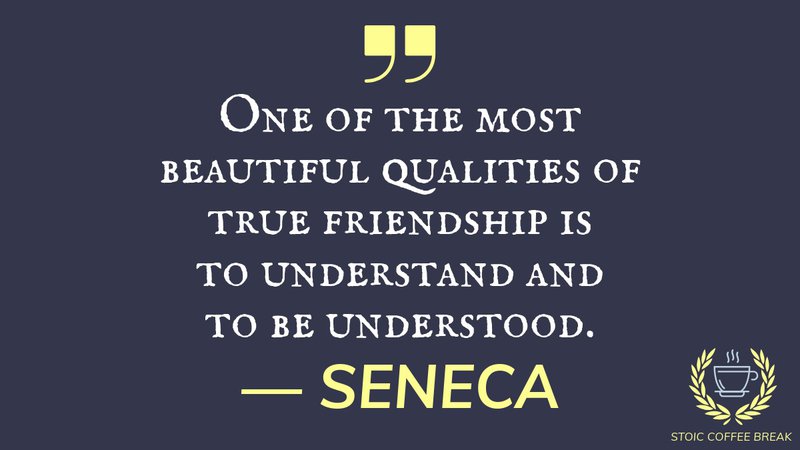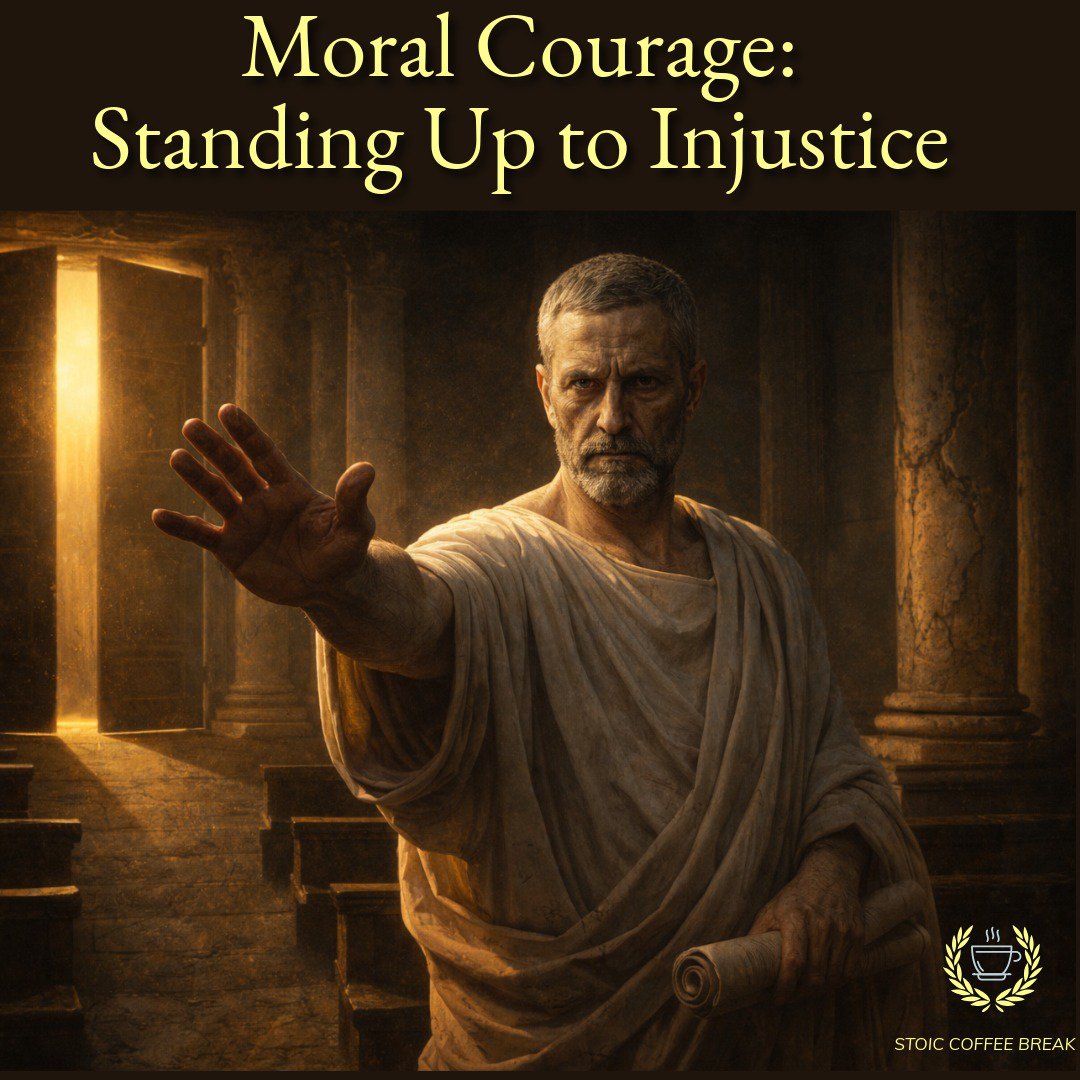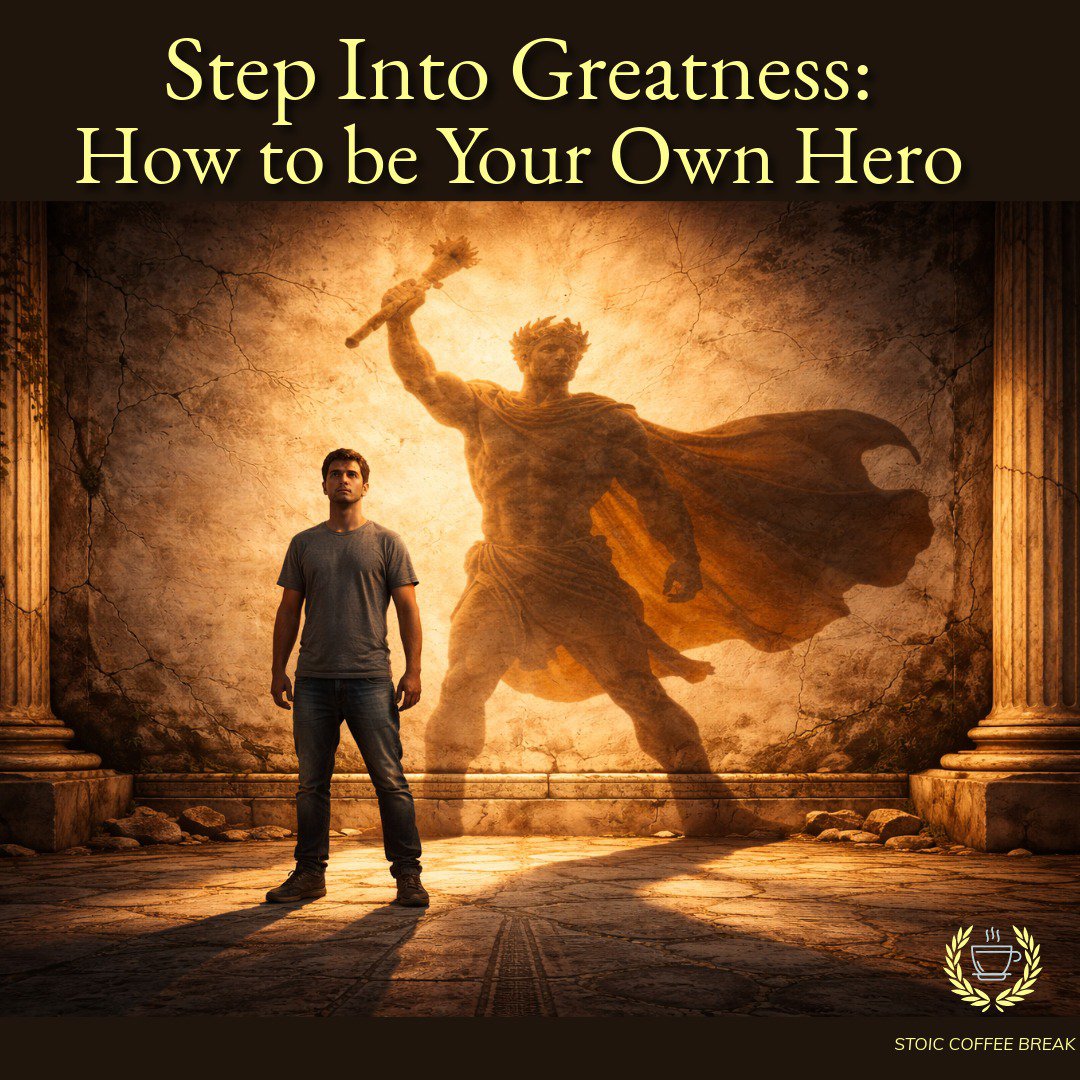
Do you feel connected to the people around you? Do you struggle to get close to those you care about? In this episode I want to discuss how Stoicism can help you develop deeper and more connected relationships with the people in your life.
“One of the most beautiful qualities of true friendship is to understand and to be understood.”
—Seneca
We all crave connection. We all want to feel close to other people, and to have strong connections. Feeling connected and having a close tribe of people is not only important to our mental health, but also to our physical health. In study after study it’s been shown that one of the biggest predictors of living longer and healthier is having a close circle of friends. It’s also one of the key factors for helping those who are recovering from addiction. But in our modern world it’s easy to find ourselves being less connected to others even as we have all this technology that is supposed to connect people.
So this episode came about because a close friend of mine requested that I talk about how Stoicism can help us create better connections with people. I know that might sound kind of strange, given how Stoicism has a reputation for emotional disconnection, but that’s where really understanding how Stoics view emotions is important.
The Stoic Theory of Emotions
The Stoics have a theory of emotions, call apatheia. Apatheia, not to be confused with the English word “apathy”, is a Greek word that comes from a– meaning ”without” and pathos, meaning “suffering” or “passion”. Now the definition of passion in this context means negative emotions such as anger or extreme sadness. So the Stoics believed that we should do our best to remove negative emotions in our lives because they cause unnecessary suffering in our lives.
The Stoics hold that we have negative emotions in our lives because of our misjudgments about events and circumstances around us. As Epictetus reminds us, “It’s not things that cause our distress, but our judgments about them.” Simply put, it’s our perspective, the thoughts and stories in our minds that cause the emotions that we feel, so when we feel negative emotions, it’s because of the thoughts we have about things.
“But wait,” you ask. “You mean to tell me that if I feel angry or upset or sad it’s because I decided to feel that that way?” Well, yes. Every emotion that we feel is because of thought going on inside our heads. We may not even be completely aware of what we’re thinking, but every emotion is caused by a thought in our head.
If you think this is a little strange, it’s because we’re never really taught to think about emotions this way. We just assume that emotions happen and we have no control over them. But let’s dissect this a little further. How many times have you been in a good mood then you start thinking about a sad experience that happened in your life, only to find your good mood has been replaced by sadness?
For example, let’s say you’re walking along somewhere and you came across a restaurant where you and your ex-partner used to go. It brings up memories about how things didn’t work out and you feel the pangs of regret for things you said and did.
Or maybe you have a memory about a parent or grandparent who passed away and you miss them. There again, it’s the story you’re telling yourself at that moment that is causing that emotion. The same goes for when you’re feeling angry or frustrated — it’s the thoughts in your mind, your perspective on the situation is what is causing the emotions that you feel.
Dichotomy of Control
Another concept that we need to dig into is the Dichotomy of Control. The Stoics teach that we need to understand what we have control over and what we don’t. So what do we have control over? Epictetus gives a really clear list: “Some things are in our control and others not. Things in our control are opinion, pursuit, desire, aversion, and, in a word, whatever are our own actions. Things not in our control are body, property, reputation, command, and, in one word, whatever are not our actions.”
Simply put, we have control over our perspective, opinions, desires, and our actions. Everything else is outside of our control. Everything. Even our bodies. I mean, you can’t control if you get cancer or an illness. You can, however, control your opinion, what you do in response to the things outside yourself. You control your perspective and your actions.
“I have often wondered how it is that every man loves himself more than all the rest of men, but yet sets less value on his own opinion of himself than on the opinion of others.”
—Marcus Aurelius
But in that list of things outside of our control is a gem that we really need to unpack: our reputation. Our reputation is always a tender spot for us. We spend a lot of time time worrying about what others think of us, and we also spend a ridiculous amount of time trying to control what other think of us. It’s like Marcus Aurelius explains, “I have often wondered how it is that every man loves himself more than all the rest of men, but yet sets less value on his own opinion of himself than on the opinion of others.”
We want to be liked. We want others to think good things about us.
But much to our dismay, other people are outside of our control. I know that’s often a hard pill to swallow but it’s the truth. It’s a realization that most of us reach at some point in our lives, as much as we might wish otherwise. Even a tyrant with absolute authority can’t control what others think about them. If this were the case then Julius Caesar would have had nothing to worry about. In the immortal words of Brook Castillo, my favorite life coach, “What other people think about me is none of my business.”
So how do these concepts come together to help us to better connect those around us? How does understanding what we control and how emotions are created help us to be better partners, parents, and friends?
Well let’s put the pieces together, shall we?
First and foremost is that we now understand that we can’t control other people, only ourselves. And if we’re honest, other people don’t like being controlled. We also don’t like it when other people try to control us (unless you’re into that kind of thing – no judgment here). We need to understand that what other people think of us, how they respond to us, or how they act in any situation is not up to us. We have to respect the fact that they autonomous beings that will think, say, and do things that are not up to us, and that there will be plenty of things they do that we might not like.
Authenticity
But this news, rather than being a downer, should be a relief. It’s one (or many) things that you can stop trying to control. One more thing off your plate. When you let go of any notion that you can control others, it allows you to focus on what you can control in your relationships—yourself. You work on how YOU want to show up. You make decisions about who you want to be, how you respond, and what actions you take. You take responsibility for your thoughts, choices, and actions, and let others be responsible for theirs.
This new found freedom allows us to be authentically ourselves.
This is especially liberating for people pleasers because we stop worrying about if we say the right thing to get the other person to like us. When we try to figure out the “right” thing to say, in a sense, we’re lying and trying to manipulate others. If they don’t like what we have to say, how they feel about it is their responsibility, not ours. Now keep in mind this doesn’t mean that you can say whatever you want and be free of consequences. It simply means that you aren’t responsible for their emotions. We should still be kind and compassionate, but we should also be honest, communicate clearly, and most importantly, take responsibility for our emotions.
Boundaries
As humans, we often try to control others through emotional manipulation by blaming others for how we feel and expecting them to change to suit us. By taking responsibility for our own emotions and actions, and not taking on the responsibility for others emotions and actions, we’re better able to set boundaries for ourselves. We decide how we allow others to treat us, because the the flip side of not controlling others, is that others can’t control us either, unless we let them.
While we’re talking about boundaries, remember that boundaries are not about telling the other person what to do. Remember that part about not controlling other people? Setting boundaries is all about letting the other person know how you will respond. You’re taking control of what you can, namely, yourself.
Emotions in Relationships
So where does apatheia fit in to all this? Well, I’m glad you asked.
Relationships are challenging because they’re all about emotional connections. How we feel about events and circumstances are created by what we think of them. People are the same. We make judgments and form opinions about others which create the emotions that we feel about them.
For example, I love my father, even though he was often violent and angry when I was growing up. I focus on the things that I loved about him—his humor, his intelligence, his curiosity, and even his kindness. I also accept that he was a conflicted and complicated person, dealing with his own demons. I choose what I think and how feel about him, without having to change who he was, since he passed away when I was 24. It’s not delusional or ignoring his actions, but a rational and deliberate choice from my side to love him as the wonderful and deeply flawed person he was.
Apatheia also means that we have a choice in how in interpret what others do or say in our relationships. We often take our emotional reaction to a situation create stories in our minds about what it means. We make assumptions, and assign motives to others actions based on our observations, and often we’re wrong. If we can suspend our judgments, we have some space to think about the situation and try to shift to a more compassionate perspective. We can begin see how our emotions might be clouding our judgments.
Now, this doesn’t mean that we ignore our emotions. Emotions are very important signals that have kept humans alive throughout history. But often times we feel something really strongly, usually because of some kind of fear, and we react to it. But sometimes our nervous system doesn’t do a good job of distinguishing between some of our base emotions. There is a big difference between the fear of disappointing a partner or friend, and being chased by a saber toothed tiger. If we’re not in any mortal danger, taking a moment to consider how we’re feeling and choosing how we want to respond can keep a disagreement from spiraling into something worse.
Vulnerability
Probably the best way that controlling what you can and being aware of your thoughts as creators of our emotions can help us the most is when it comes to being vulnerable with other people. I know that sounds strange, but hear me out. Being vulnerable is one of the most important aspects of connecting with others at an emotional level. The more honest and vulnerable we can be with others, the more trust it creates for both people involved and the stronger the connection.
Being vulnerable can feel very scary. When we share something that is important and a bit raw for us, we’re worried about what the other person might think about us. Will they hate us? Will they laugh at us? It’s uncomfortable to say the least. But, this is where you have to let go of trying to control what others think about us. Seneca writes, “We are more often frightened than hurt; and we suffer more from imagination than from reality.”
We should be vulnerable with others because it’s what we want to do, not because we expect a certain reaction from another person. It’s always possible that they will react in a way we don’t like, and that’s something that is not in our control. We need to let go of any expectation of how we want them to respond. As Epictetus reminds us, “The more we value things outside our control, the less control we have.”
When we’re vulnerable with someone and they don’t respond how we want, we also have to remember that what we feel about their response is coming from our thoughts about it. This is what Epictetus means when he said, “It is not events that disturb people, it is their judgements concerning them.”
Basically, we create a story about what their response means. If you share something vulnerable without attachment to any particular response, then you allow the other person to genuinely share how they feel about something as well. Letting go of expectations can really go a long way in fostering vulnerability on both sides.
“It is not events that disturb people, it is their judgements concerning them.”
—Epictetus
Conclusion
Connection with others is one of the most important things for us as humans. We’re hardwired to connect because we couldn’t survive in the world without other people. It’s also what gives life meaning. By understanding that we only control how we show up and not trying to control what others do or say can go a long way towards strengthening connections with others. We take responsibility for our emotions and actions, and not the emotions and actions of others, which allows us to be more vulnerable. We’re better able to accept others for who they are because we recognize that we can’t change them.
So the next time you find yourself struggling in your connections with others, think on what Marcus Aurelius said: “Everywhere, at each moment, you have the option: to accept this event with humility; to treat this person as they should be treated; to approach this thought with care, so that nothing irrational creeps in.”
Visit the Stoic Coffee Break website for more episodes, transcripts, and merch.
Find out more about the Leadership Mastermind.
Find me on linkedIn, instagram, twitter, or threads.
Thanks again for listening!


